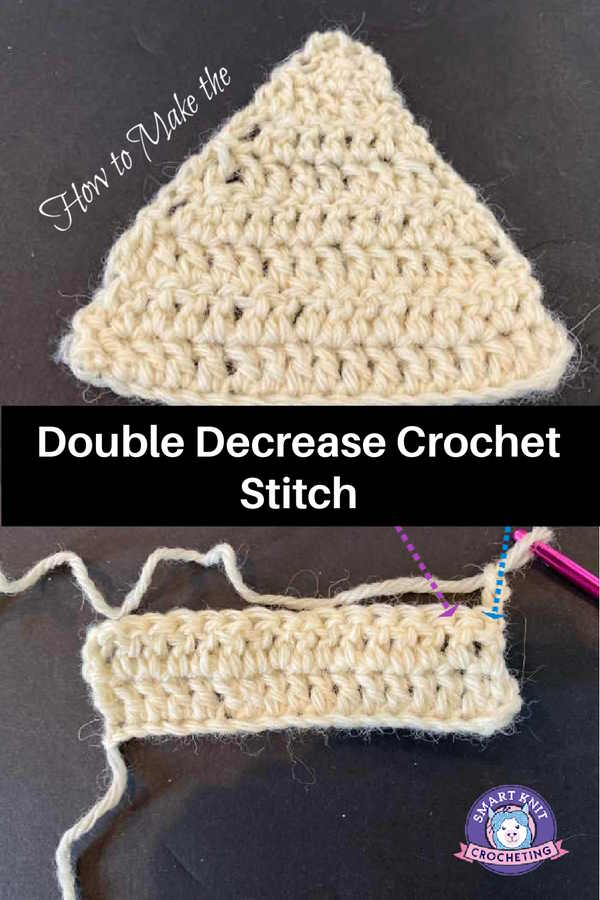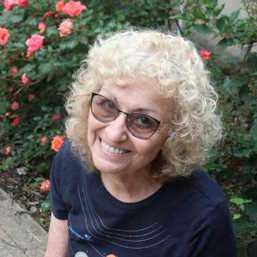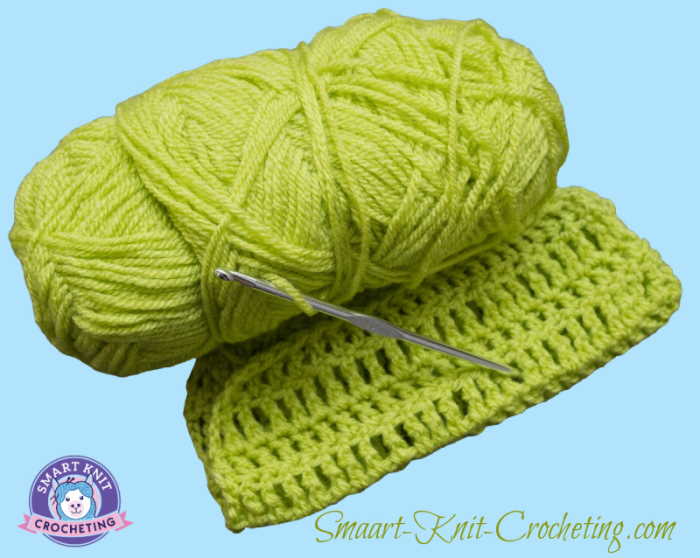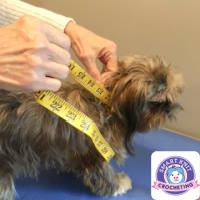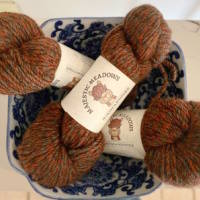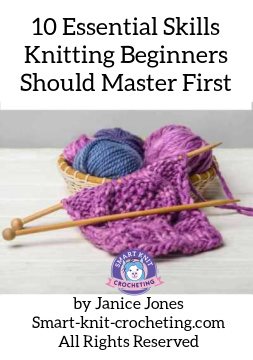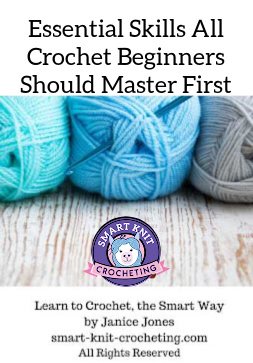- Home
- How to Crochet
- Double Crochet Decrease Stitch
How to Make the Double Crochet Decrease Stitch
Crochet Decrease Stitch by Janice Jones
Most beginner crocheters will encounter the need to decrease a stitch when they are making a crochet pattern. But what exactly does it mean to decrease a stitch?
Most patterns that call for a double crochet decrease stitch will expect you to understand what to do. Whether you need to decrease while working in double crochet, or in single or half double, the method it basically the same.
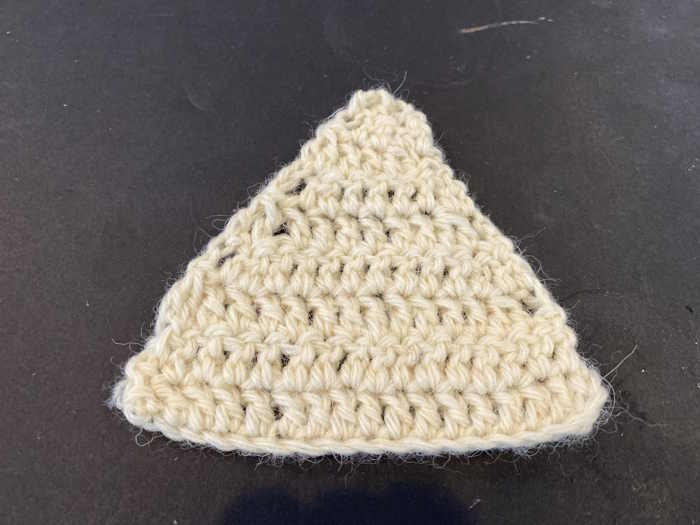 The double crochet decreased stitch can be used to create small triangles if placed on both the beginning and end of the row.
The double crochet decreased stitch can be used to create small triangles if placed on both the beginning and end of the row.What is a Double Crochet Decrease Stitch
A double crochet decrease stitch, abbreviated DC2tog in the US, and in the UK, you would see it written as TR2tog because a double crochet in US terms is the same as a treble crochet stitch in UK terms.
This is a stitch commonly used for shaping. It is made by joining two stitches together, therefore decreasing to one stitch. Follow
Double Decrease Crochet Stitch
DC2tog (US) TR2tog (UK)
What Does the Symbol Look Like for the Double Decrease Crochet Stitch?
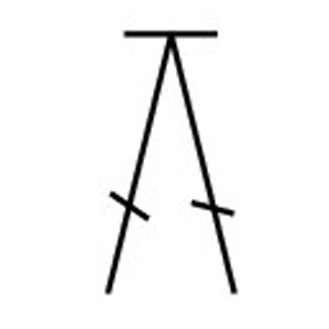 DC2tog: Chart Symbol
DC2tog: Chart SymbolWhy Learn the Double Crochet Decrease Stitch
You must master the double crochet decrease stitch if you create a project that requires any shaping, such as any clothing (pullovers, cardigans, shawls, dog sweaters) or if you make stuffed toys (amigurumi).
It’s also a valuable skill to learn as a stepping stone towards becoming an advanced crocheter. It is one step beyond the basic crochet skills and more intricate designs.
In essence, learning the double crochet decrease stitch greatly enhances one's crochet skill set, providing versatility and command of the craft.
How to Make the Double Decrease Crochet Stitch
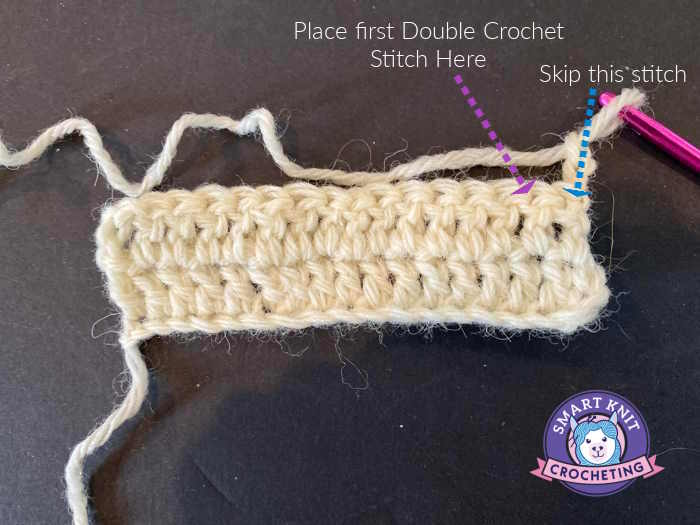 The needle in this photo points to where I have placed the double crochet decrease stitch. Notice that this stitch looks different from the ones adjacent to it.
The needle in this photo points to where I have placed the double crochet decrease stitch. Notice that this stitch looks different from the ones adjacent to it.This is an easy beginner technique.
- Start by making a double crochet stitch as usual: Yarn over, and insert your hook into the first stitch.
- You have three loops on your hook. Yarn over and pull through two loops.
- This is where it differs: Insert your hook into the next stitch.
- Yarn over and pull up a loop. (Four loops on the hook).
- Yarn over and pull through 2 loops.
- Yarn over and pull through the remaining 3 loops.
You now have two double crochet stitches that are now reduced to one stitch.
How to Make the Double Decrease Crochet Stitch at the Beginning or End of the Row
DC2tog at the Beginning of the Row
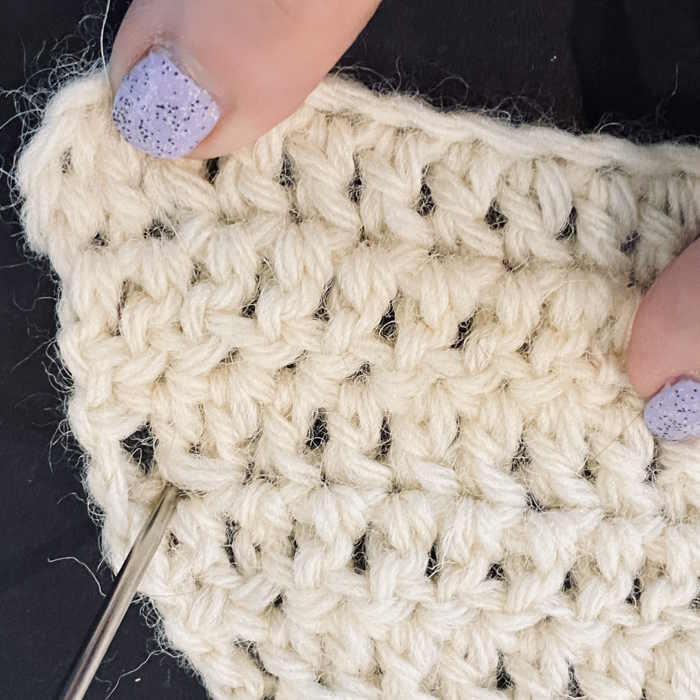
To create a double crochet decrease at the beginning of the row, begin the double crochet decrease in the same stitch that you would normally place it. This would be the second stitch from the hook.
- Yarn over, and insert your hook into the first stitch.
- You have three loops on your hook. Yarn over and pull through two loops.
- Insert your hook into the next stitch.
- Yarn over and pull up a loop. (Four loops on the hook).
- Yarn over and pull through 2 loops.
- Yarn over and pull through the remaining 3 loops.
Continue across the row making double crochet stitches as directed by your pattern.
DC2tog at the End of the Row
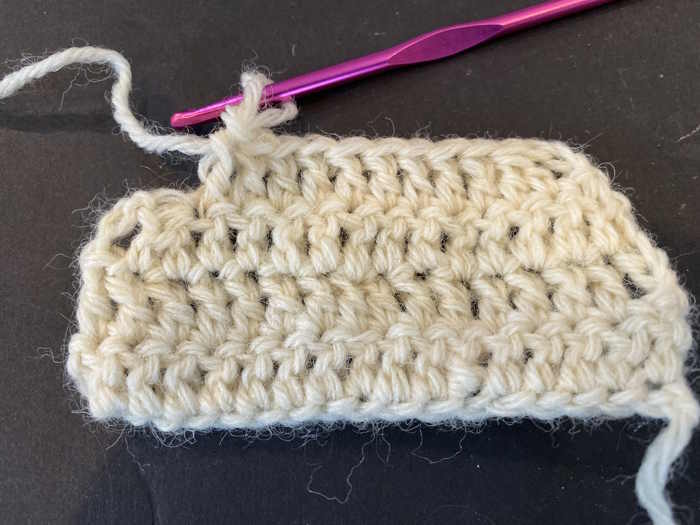 The first part of the double crochet decrease stitch is placed in the last double crochet of the row. The following portion of the double crochet decrease stitch is made in the top of the Chain 3 from the previous row.
The first part of the double crochet decrease stitch is placed in the last double crochet of the row. The following portion of the double crochet decrease stitch is made in the top of the Chain 3 from the previous row.Work across the row until you have two remaining double crochet stitches. Normally this would be the last double crochet stitch and the top of the chain 3 that you created at the end of the previous row.
- Yarn over, and insert your hook into the first of the last two stitches.
- You have three loops on your hook. Yarn over and pull through two loops.
- Insert your hook into the top of the chain 3 from previous row.
- Yarn over and pull up a loop. (Four loops on the hook).
Yarn over and pull through 2 loops. - Yarn over and pull through the remaining 3 loops.
Double Crochet Decrease Stitch

Here is a phot of what the double crochet decrease stitch looks like when you make decreases at both the beginning and the end of the row.
Double Crochet Decrease Stitch
Pin for Future Reference
References and Further Reading
- Crochet Guild of America. (2012). Guidelines For Crochet and Knitting. CGOA: Zanesville, OH.
Inspiration for Beginning Crocheters
"The more you crochet, the more you realize the links between crochet and life. Each stitch builds on the one before, just like each day in life builds on the experiences of the past."
- Carol Ventura, a tapestry crochet expert and author
If you found this Double Crochet Decrease Stitch Tutorial Helpful, you might want to check out these too.
About Janice
Hi, I’m Janice, the voice behind Smart-Knit-Crocheting. I love to knit and crochet and even more, I love teaching others what I know.
Though I learned to knit and crochet as a child, I didn’t get serious about these amazing hobbies until I retired. I’m a certified knit and crochet instructor through the Craft Yarn Council and am working on becoming a Master Hand Knitter through The Knitting Guild Association.
I’m currently living with my husband of over 50 years and our 6 Shih Tzu dogs.
I love hearing from you, so please drop me a line and let me know what you’re working on, whether you love knitting or crocheting more, and if you have any questions. Please visit my about me page for more information.
Happy Crocheting
